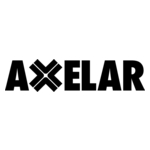
Part of its “Maeve” mainnet upgrade, Axelar’s implementation of quadratic voting is one of the first uses of the powerful security-boosting technology in Web3.
WATERLOO, Ontario–(BUSINESS WIRE)–Axelar, the universal overlay network that has raised $64 million to deliver secure cross-chain communication for Web3 protocols such as Avalanche, Osmosis and Polkadot, announced that it will be one of the first Web3 protocols to introduce quadratic voting to further advance cross-chain security. By requiring progressively more tokens for each additional vote, quadratic voting combats the so-called “tyranny of the majority” and improves Axelar’s network security by boosting its decentralization. The implementation of quadratic voting is part of the project’s recently completed mainnet upgrade, code-named Maeve (after the leading sci-fi TV series Westworld character) to add to the robust cross-chain interoperability infrastructure that Axelar provides as it grows and powers the cross-chain future.
Georgios Vlachos, Co-founder of Axelar, commented: “While this concept has been widely discussed and vaunted by blockchain leaders, very few projects have actually implemented it. With quadratic voting, each validator’s voting power is equal to the square root of the delegated stake it accumulates, as opposed to the actual stake. So, for a validator to cast one vote, they need only hold one share. But to cast two votes, they must hold four shares. To cast three votes, they must hold nine shares, and so on. This allows for a variety of practical solutions, like a voter being able to buy and apply more votes to their desired position. With cross-chain security our main focus, this is a huge milestone.”
The majority of blockchain networks, like publicly traded companies, operate under a system in which owning one share guarantees one vote. This gives the largest shareholders the ability to exert overpowering influence on a business’ development. Quadratic voting facilitates a more decentralized distribution of power by according less marginal voting power as the number of tokens held increases. This approach makes the networks that employ it less vulnerable to hacks via concentrations of token ownership, as power is shared among a larger number of validators.
Sergey Gorbunov, Co-founder of Axelar, commented: “As Web3 blossoms, we’re seeing more and more instances of cross-chain security vulnerabilities. For example, cross-chain bridges have seen prolific attacks recently. We have been working to ensure the next generation of blockchains can interop with one another in a safe and secure manner. We always research new ways to improve security, functionality and interoperability on the Axelar network. The quadratic voting system revolutionizes security for our current and future users, ensuring industry wide scalability is realized.”
When detailing his consideration of quadratic voting, Ethereum co-founder Vitalik Buterin highlighted that the concept could be as deeply transformative as the industrial-era advent of constitutional democracy. Axelar’s implementation of quadratic voting in the new Maeve release fastens on this idea, as quadratic voting will mitigate the effects of a small number of validators obtaining a disproportionate stake in the network.
Today’s announcement follows on a string of new Axelar integration announcements, including Near Protocol via the largest dex on Aurora, Secret Network, Moonbeam, Osmosis and a string of Avalanche subnets. In February, Axelar announced a $35 million Series B funding round, which saw the project achieve a valuation of $1 billion. Axelar has an extensive network of ecosystem partners including Aurora, Avalanche, Cosmos, Ethereum, Fantom, Keplr, Metrika, Pangolin, Moonbeam, Osmosis, Polkadot, Polygon and Solarbeam.
About Axelar
Axelar delivers secure cross-chain communication for Web3. Our infrastructure enables dApp users to interact with any asset or application, on any chain, with one click. Axelar is a blockchain that connects blockchains, enabling universal Web3 interoperability. The network is secured using proof-of-stake consensus, and messages are routed and translated using permissionless protocols. Axelar is like Stripe for Web3.
Axelar has raised capital from top-tier investors, including Dragonfly Capital, Polychain Capital, Coinbase, and Binance. Partners include major proof-of-stake blockchains, such as Avalanche, Cosmos, Ethereum, Polkadot and others. Axelar’s team includes experts in distributed systems/cryptography and MIT/Google/Consensys alumni; the co-founders, Sergey Gorbunov and Georgios Vlachos, were founding team members at Algorand.
More about Axelar: docs.axelar.dev | axelar.network | GitHub | Discord | Twitter
Contacts
Darius Goore
axelar@wachsman.com
This news is republished from another source. You can check the original article here.







Be the first to comment